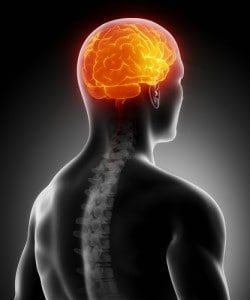Study Reveals the Prevalence & Dangers of Undiagnosed Sports Concussions
August 23, 2017Athletes who play high-contact sports are at risk of suffering various injuries, including concussions, a mild form of traumatic brain injury (TBI). While various research has suggested that concussions in athletes commonly go unreported, a recent cross-sectional study focused on uncovering the prevalence and risks associated with undiagnosed sports concussions.
Have You or a Loved One Been Diagnosed with a TBI?
You are also invited to call (713) 352-7975, text (281) 612-8024 or email our firm for a free, no obligations consultation and essential advice regarding your potential TBI claim. If you can’t visit our offices, we offer free virtual and mobile consultations.
Background on the Concussion Study

Study Reveals the Prevalence & Dangers of Undiagnosed Sports Concussions
Entitled The Prevalence of Undiagnosed Concussions in Athletes, this clinical study focused on 486 patients who had been “diagnosed with sports-related concussions or concussions with injury mechanisms and forces similar to those observed in sports.”
While this included athletes, it also included others – like those who had concussions resulting from falling accidents (from a standing position) or fist-fighting. It did not, however, include those with “more severe injury mechanisms,” such as the victims of car accidents.
To evaluate the incidence and risks of undiagnosed sports concussions, researchers gave participants:
- A copy of the Post-Concussion Symptom Scale (PCSS) – The PCSS is a list of 22 concussion symptoms, including a 0-to-6 rating system for each symptom (with “0” indicating no symptoms and “6” indicating severe symptoms). The sum of numbers assigned to each symptom can then be used to diagnose the severity of a concussion (along with other diagnostic tests). The highest PCSS score – 132 (22 x 6) – would usually be associated with the most severe TBIs.
- A one-question survey – The question participants were asked to answer was, Have you ever sustained a blow to the head which was not diagnosed as a concussion but was followed by one or more of the signs and symptoms listed in the Post-Concussion Symptom Scale?
Those who answered, “Yes,” to the question were considered to have had experienced a previously undiagnosed concussion.
Undiagnosed Sports Concussions: The Study’s Findings & Recommendations
According to researchers, 148 participants answered, “Yes,” to the survey question. Effectively, this means that 30.5 percent of those involved in this study had suffered a previous head injury that was not diagnosed as a concussion but that was associated with symptoms on the PCSS.
In comparing those with previously undiagnosed concussions to those who had not experienced a previously undiagnosed concussion, researchers found that the group with a previously undiagnosed concussion:
- Had higher PCSS scores – In effect, this group was experiencing more symptoms and/or more severe symptoms (than the group without a previously undiagnosed concussion).
- Were more likely to lose consciousness with subsequent injuries.
These findings led researchers to conclude that:
- Nearly 33 percent of athletes have suffered previously undiagnosed concussions.
- These athletes tend to have higher PCSS scores and a higher incidence of unconsciousness with subsequent concussions.
- “Failure to diagnose concussions in athletes can lead to further insults to the brain before full recovery, exposing these athletes to the cumulative effects of injuries and an increased risk of second impact syndrome.”
Based on these conclusions, researchers recommended “a prospective study” to uncover “the reasons behind the underdiagnosis of concussions.” The intent would be to discover new and better ways to “effectively encourage these athletes to seek proper medical attention” after suffering head and brain injuries.
Find Out More about Your Potential TBI Claim: Contact a Houston Brain Injury Lawyer at the Amaro Law Firm
A Houston brain injury lawyer at the Amaro Law Firm is ready to provide you with the answers, guidance and representation you need to position a TBI claim for any possible recovery.
Call (713) 352-7975, text (281) 612-8024 or email our firm for a free case evaluation.
Although we are aware that money can never reverse the impacts of permanent injuries and losses, we also know that recoveries from TBI cases can provide the financial means to get the right treatments and restore lives.
Let us put our experience, acumen and skills to work helping you recover from a TBI. Our record of success and exceptional representation in TBI (and other personal injury) cases has earned us 5-star ratings on Google and Facebook.
